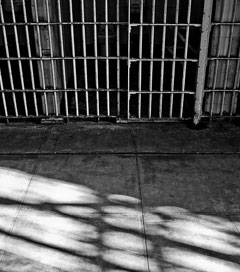By the time this article sees print, Georgia will almost certainly have set an execution date – his fourth – for Troy Anthony Davis, a black man who was condemned to death for killing a white Savannah police officer in 1989.
Having exhausted his court appeals, Davis may well end his life strapped down to Georgia's death gurney. But if the criminal justice system allows this execution to go forward, it will commit one of the gravest miscarriages of justice in American history – an abomination facilitated without a word of explanation by the United States Supreme Court.
A review of the evidence by a researcher on capital punishment led ineluctably to two conclusions:
- Davis was framed by the Savannah law enforcement authorities.
- The Davis case is an execrable instance of the double standard of justice that American courts still routinely impose on men and women of color.
There is no convincing evidence to implicate Davis in the fatal shooting of police officer Mark Allen MacPhail … except for Davis' misfortune to be present, along with many others, at the crime scene. There is no physical evidence (such as a set of fingerprints) to link Davis to the killing, and indeed, the murder weapon was never found. The case against Davis rests entirely on the testimony of eyewitnesses, and that is precisely why the case falls apart, for seven of the nine witnesses recanted their testimony, and most of them acknowledged having testified originally under police pressure.
Astonishingly, one of the two remaining witnesses who have NOT recanted, Sylvester Coles, has been identified as the real killer, but once Davis was seized, the deadly wheels were set in motion and gathered momentum as the years passed.
This is how the Savannah police built their case around Davis, in the words of Darrell Collins, one of the original witnesses who subsequently recanted his testimony:
“The police were telling me I was an accessory to murder, and that I would go to jail for a long time, and I would be lucky if I ever got out…. I was only 16 and I was so scared of going to jail.”
So, Collins perjured himself, but found the courage to risk an indictment for perjury by admitting that he lied about Davis' guilt. Interestingly, the Georgia prosecutors have not indicted a single one of the seven who have recanted their testimony on a charge of perjury. Can it be that the authorities do not wish to visit this issue?
In June 2010, after Davis had spent 18 years on death row (and once come within a half-hour of execution), the US Supreme Court ordered a Georgia federal judge to conduct an “extraordinary” evidentiary hearing to decide whether Davis deserved a new trial.
On August 24, 2010, the judge handed down his verdict: such an extraordinary hearing, he deemed, requires an “extraordinarily high” burden to prove that Davis merits a new trial. Though the judge acknowledged certain problems with the prosecution case, he ruled against Davis. One wonders whether the judge had ever heard the words “reasonable doubt.”
In a final, recent appeal to the Supreme Court, Davis' motions were dismissed without comment. Why has Georgia fought so furiously to execute Davis? One reason must surely be the fear that to admit a mistake would undermine the public's faith in the criminal justice system. But a second reason, as statistics show, is that a black man's life counts for less than a white man's. Blacks comprise only 12 percent of the population but an enormous 42 percent of inmates on death rows across the country, mostly in the South. Only the most devout member of the Ku Klux Klan would give credence to the argument that blacks are almost four times more homicidal than whites.
What Is Left for Troy Davis?
The Georgia State Board of Pardons and Paroles has just replaced two of its members, so there is the tenuous hope that public pressure might persuade the board to save Georgia's reputation by granting Davis clemency while his defense team seeks to exonerate him.
The attorney general of the United States, Eric Holder, can appoint a special prosecutor to investigate whether Davis' civil rights were violated by the Savannah police and county prosecutors. This is entirely consistent with the 1964 Civil Rights Act, and consistent as well with President Obama's pledge to bring change to America.
All Americans may join former President Jimmy Carter, a Georgia native son, and millions of other people, as well as organizations such as Amnesty International and the National Association for the Advancement of Colored People (NAACP), in demanding justice for Davis. Letters and telegrams may be sent to:
State Board of Pardons and Paroles
2 Martin Luther King Jr. Drive, SE
Suite 428, Balcony Level, East Tower
Atlanta, Georgia 30334-4909
You may also phone Attorney General Eric Holder at 202-353-1555 and urge him to intercede on Troy's behalf.
Join us in defending the truth before it’s too late
The future of independent journalism is uncertain, and the consequences of losing it are too grave to ignore. To ensure Truthout remains safe, strong, and free, we need to raise $46,000 in the next 7 days. Every dollar raised goes directly toward the costs of producing news you can trust.
Please give what you can — because by supporting us with a tax-deductible donation, you’re not just preserving a source of news, you’re helping to safeguard what’s left of our democracy.
